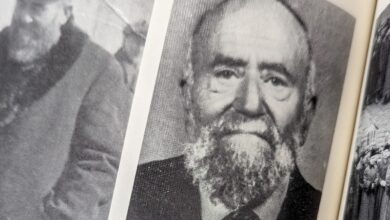You Visited Me In Prison
Faith groups partnering with states to help make released convicts productive citizens.
Jesus’ words in Matthew 25:36 are among the most quoted from the New Testament: “I was in prison and you visited me.” However, although prison ministries in Kansas and Missouri have had increasing access to prisoners for decades, their presence in publicly funded prisons faces opposition.
Detractors have cited the Establishment Clause in the First Amendment as requiring separation of church and state. Even so, the vital role of such organizations has become increasingly prominent in the criminal justice system over the last half-century. The number one reason? Results.
Faith-based organizations have many advantages in mobilizing volunteers to serve in prisons. Their methods and messaging often also have superior impact on prisoners over comparative secular programming. As a case in point, Jackson County became just the second county in the nation to operate a drug court for non-violent offenders as an alternative to incarceration.
Although recidivism rates for repeat offenders are 54 percent in Missouri, 45 percent in Kansas and 75 to 80 percent nationwide, the Kansas City Drug Court boasts a recidivism rate of just 4 percent, with 96 percent of graduates remaining conviction free from repeat offenses after graduating. Drug Court classes include stringent accountabilities as a condition for graduation, and involve anger and case management; individual and group counseling; prevention; substance abuse treatment; and employment training and placement. According to the Jackson County website, “100 percent of Drug Court graduates are employed full-time or in school full-time at the time of their graduation.”
George Williams, assistant director for faith-based and community initiatives for the State of Kansas, was a founding partner in helping facilitate the Kansas City Drug Court in the 1990s. He emphasizes that the court was not in formal partnership with faith-based organizations, although faith-based leaders and organization had contributing roles.
“I believe as many others that the faith community is essential in addressing the social needs of the most vulnerable people in our communities,” he said.
As a director for the urban fathering initiative for the National Center for Fathering, Williams provided training to fathers participating in drug court and stressed the vital roles dads play in lives of their children.
Even though Kansas City’s Drug Court, which has become a national and global model for success, represents alternatives to incarceration of prisoners, the challenges facing inmates in Kansas and Missouri are formidable. The model has not gone unnoticed by Missouri’s Supreme Court justices. Each year, one of justice gives a State of the Judiciary Address to a joint session of the Missouri General Assembly. That address has consistently called on legislators to appropriate more funding for alternatives to incarceration for non-violent offenders.
 Missouri Gov. Eric Greitens made the role of faith-based organizations in state prisons a prominent theme in his first State of the State address. “We must reform our corrections system” and “we need to find ways to reduce recidivism,” he said.
Missouri Gov. Eric Greitens made the role of faith-based organizations in state prisons a prominent theme in his first State of the State address. “We must reform our corrections system” and “we need to find ways to reduce recidivism,” he said.
Greitens, who is Jewish, called on faith-communities to partner with Missouri prisons. “To tackle this problem, we need to engage groups from across society–most importantly our faith community. I have seen that a turn towards faith can actually save lives in prison. And I will welcome our churches and our synagogues into our corrections facilities.”
Rev. Gene Purtle, Chaplain for the Jackson County Detention Center, is encouraged by Greitens’ comments. “Faith based programs in jails and prisons bring proven positive outcomes, not just in the long term rehabilitative impact on the inmates, but in the day to day interaction between staff and inmates in the facility,” Purtle told Metro Voice.
On the Kansas side, many faith-based organizations are providing support to prisoners while they are incarcerated, as well as assistance upon reentry into society. Thomas A. “Artie” Lucas serves as executive director of Brothers in Blue Reentry Inc., an offshoot of the InnerChange Freedom Initiative and Prison Fellowship, which was founded by the late Charles Colson.
Lucas leads his organization in helping prisoners in the Lansing Correctional Facility. Says Lucas, “Brothers in Blue see a recidivism rate of just seven percent among inmates participating in their faith-based and Christ-centered programming.”
Working Men of Christ Ministry, Inc. is another faith-based prison ministry serving inmates in Kansas. Executive Director Spencer Lindsay told Metro Voice that this ministry serves inmates at the Topeka Correctional Facility, the state penitentiary in Lansing and at the Hutchinson Correctional Facility.
Like Brother in Blue, Working Men of Christ Ministry provides both program supports to prisoners during incarceration and transitional supports upon release from prison and reentry into society. According to a recent newsletter, Working Men of Christ operates four transitional homes in Wichita and one in Topeka.
“I always tell inmates, ‘Change is not change, unless something changes’,” says Bill Corum, founder of Prison Power Ministries.
Corum would know. The self-described underworld enforcer and drug dealer says after his arrest and imprisonment in 1984 in Holden, Mo., he experienced a conversion to Christ and spiritual transformation, leading to his founding of a prison ministry with a national impact. He said that in 30 years of prison ministry, he had seen thousands of men and women try many different things to bring change in their lives.
Corum’s book, The Ultimate Pardon, has been distributed to nearly 50,000 inmates in over 2000 prisons throughout the country. On January 6, three days before leaving office, Missouri Gov. Jay Nixon pardoned Corum, leaving him with a record cleared of all felony convictions. The action by Nixon, a Democrat, was well received by those on both sides of the political aisle.
Corum expressed great hope after Greitens’ State of the State address, welcoming churches and synagogues into Missouri’s correctional facilities.
“I know that after almost 40 years as a rebellious law breaker, and now 33 years as a completely different person, that real change comes from the inside out,” Corum said.
Corum’s support echoed the sentiments of Williams, Lucas and Lindsay, telling Metro Voice, “Lasting change comes through faith in Jesus and an ongoing relationship with Him.” He said one way to accomplish this is to “have Christian mentors going into the prisons and meeting regularly with the inmates who desire that change.”
Lucas and Lindsay both emphasized the importance of transitional supports, such as housing, education and employment assistance for released prisoners reentering society.
Chaplain Purtle says the church must get involved and understand the need for such involvement. “Interaction with ‘criminals’ makes people nervous. Yet when I speak at churches I always ask how many have an incarcerated loved one,” Purtle said, “The number of hands is always surprisingly high. This is our problem to address.”
–Dwight Widaman | Metro Voice Editor
FOR MORE INFO VISIT:
www.jacksoncountycombat.com/168/Drug-Court
www.workingmenofchristministry.com
.








